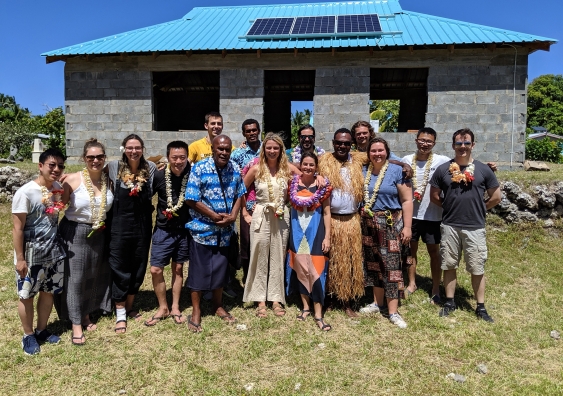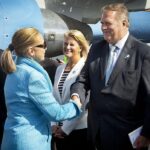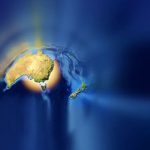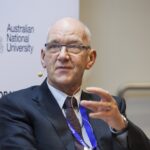UNSW students have designed a solution to help improve the electricity availability to remote villages on Viwa Island and Yanuca Island, off the coast of Fiji.
The project aims to introduce students of UNSW Engineering’s Sustainable Energy for Developing Countries course to many of the technical and non-technical issues related to the delivery of sustainable energy services in developing countries, while offering the chance to travel to the islands to undertake further on-the-ground research.
Dr Anna Bruce from the School of Photovoltaics and Renewable Energy Engineering teaches the class, using her expertise in renewable energy integration.
“One of the key challenges in these communities is the local capacity to maintain their own equipment,” says Dr Bruce.
“We challenge the students to ensure that they design a solar system that is technically and financially sustainable. We also ask them to consider the cultural and governance structure.”
Viwa Island
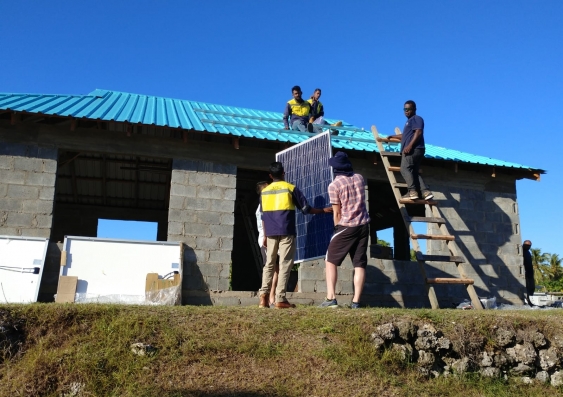
The students designed and installed a solar-powered freezer to help the villagers freeze any fish they catch.
The students visited Najia village on Viwa Island, on the outermost of the Yasawa Island group, a place renowned for its fishing culture. Applying part of their project work at UNSW, the students designed and installed a solar powered deep freezer to allow the villagers to freeze their catch and sell it on the mainland for more money.
Fourth year UNSW Renewable Energy Engineering student, Sera Tarpis, was one of the lucky students who were chosen to go on the field trip. She says that a key part of the solution is to empower the community and allow them to be self-sufficient.
“A key learning from this trip has been the importance of engineering design with people in mind, especially for humanitarian engineering,” says Sera.
“Having the privilege to enter the community and hear and see the concerns was very illuminating.
“It demonstrated the incredible impact a well-designed project can have, but also just how quickly expensive equipment can fall into disuse if not if not implemented correctly.”
Recent UNSW Solar and Photovoltaic and Solar Energy Engineering graduate, Darcy Small, was also part of the same group of students who travelled to Viwa Island. He says the trip made him appreciate another culture and lifestyle.
“I’m looking forward to seeing the impact this project makes over the next year,” he says.
“After installing the solar freezer system, we were received in a traditional island ceremony for guests to the village. The communities we worked with place a high value on family and community relationships, reminding me of the importance of these aspects in life back home.”
The students hope that their research will help pave the way for the next group of students taking the class to make informed decisions and plans about how to further assist these communities. They suggest that further access to cold storage for fish, clean water, household electrification or clean cooking would make a positive impact on the community.
Humanitarian engineering
These projects are part of a wider collaboration of UNSW with the University of South Pacific (USP) and aim to address Fiji’s lack of access to energy services – 20 per cent of the rural population there does not have access to electricity.
The partnership is funded by the UNSW Institute for Global Development and the Australian Renewable Energy Agency (ARENA).
Dr Bruce along with colleagues Jose Bilbao from the School of Photovoltaics and Renewable Engineering, Iain MacGill from School of Electrical Engineering and Telecommunciations and Atul Raturi from USP have held workshops with stakeholders in utilities companies, government, development partners and aid agencies to understand the needs and challenges of the renewable electricity and create solutions using a design-thinking approach.
The workshops resulted in Dr Bruce and her team now being at a stage where they can provide more detailed consultation to put together a proposal for action in the future. Dr Bruce is also working to integrate more interdisciplinary projects into her courses.
“I think there’s huge value in students collaborating with their peers in other faculties. It’s fantastic when you can bring a different way of thinking to a problem,” she says.
“The next steps would be to see how and where else we can tap into the expertise in other faculties to combat global challenges.”

